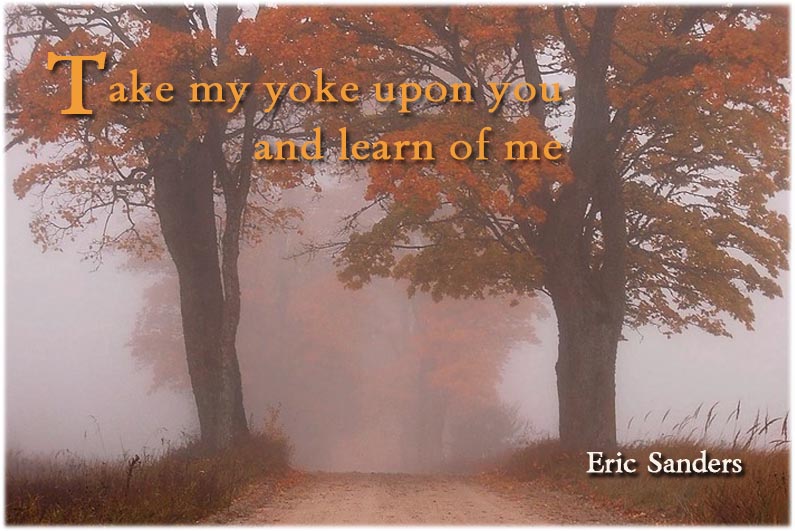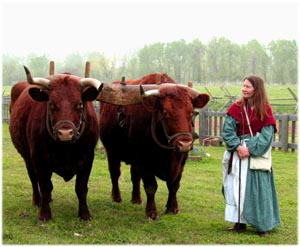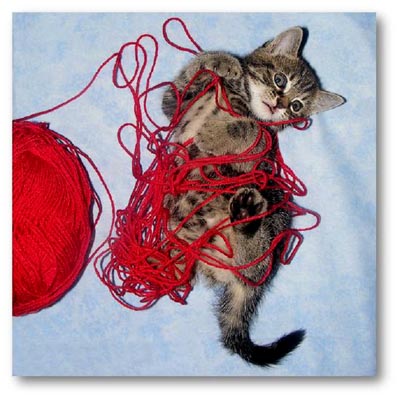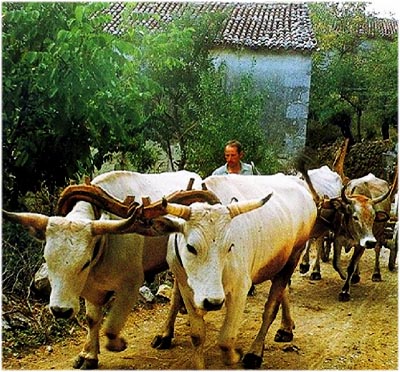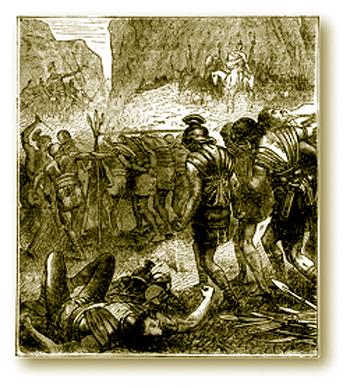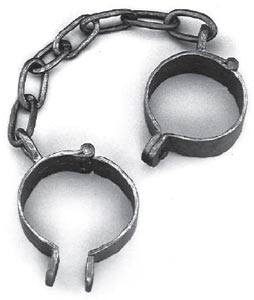In today’s twenty-something world,
the word sin isn’t very popular—
“Take my yoke upon you and learn of me,
for I am meek and lowly in heart,
and ye shall find rest unto your souls” —Matthew 11:29
![]()
I n the mountains east of Latium, there lived a rather wild people called AEquians, who were very often at war with Rome. After some time of peace and good conduct, these people suddenly began to plunder the rich farms of the Romans. This was about 450 years before the birth of Christ. As soon as the Roman Senate heard what the AEquians were doing, it sent messengers to the AEquian king to complain of the wrong. The messengers found the king in his camp, sitting near a huge oak tree. But when they spoke to him he answered them rudely, saying:
“I am too busy now with other matters. Go tell your message to the oak yonder!”
And it is said that the angry messengers did tell the message to the oak, and to all the other trees around, and boldly shouted that war would come from this insult to Rome. Once the messengers returned to Rome and told how they had been insulted by the AEquian king, the Senate at once declared war against the AEquians and ordered the Consul Minucius to lead an army against them.
The Romans easily won a few battles at first. Then the AEquians began to retreat as if they did not mean to fight anymore. The Romans followed swiftly, until they were drawn into a narrow valley on each side of which were high, rocky hills. It was a trap, and the Romans knew it before they had marched very far from the entrance.
The AEquian king then closed up the valley with strong barricades and placed his troops at the entrance and along the hills, so that the Romans could not get out.
In the valley, there was little grass for the horses and no food for the men, so that if the Romans were not soon relieved, both they and their horses would die of hunger.
But luckily for the Romans, a few of their horsemen had managed to get out of the valley before the AEquians closed it. They rode as fast as they could to Rome and told the Senate. What was to be done?
After a good deal of discussion, Lucius Quinctius, known also as Cincinnatus, was chosen dictator. As dictator, he had more power than the Senate or the consuls and all his commands had to be obeyed just as if he were a king.
Before evening Cincinnatus and his army marched out of the city for the Alban Hills, where the Romans were shut up. They reached the place in the early morning and formed in a line all around the hills. The AEquians then found themselves hemmed in on every side. They fought as well as they could, but they were quickly overpowered, so that they could do nothing but cry to the Roman commander to spare their lives.
Cincinnatus spared their lives, but he made them pass under the yoke. The yoke was formed of two spears, fixed upright in the ground, and a third fastened across near the top from one to the other. Cincinnatus made the AEquians lay down their arms and pass out, every man of them, under the yoke of spears. They had to bend their heads as they did so, for the spears were not very long, and the one on the top was only a few feet from the ground. The yoke was set up between two lines of Roman soldiers, and as the AEquians passed under it, the Romans jeered at them and taunted them.
Having to pass under the yoke was regarded as the greatest disgrace that could happen to soldiers. Many much preferred to suffer death. The practice has given to our language the word subjugate, meaning to subdue or conquer, from the Latin words sub, under and jugum, yoke.”
— from Famous Men of Rome
by John H Haaren and A.B. Poland
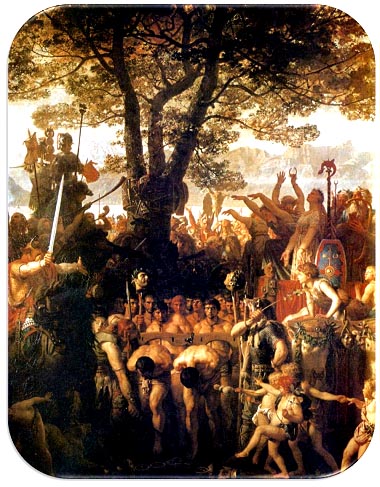
[clearcol]
| Literal References |
What is a yoke? Today, many of us fail to grasp the literal and figurative meaning of the term yoke since, for the most part, we have not grown up in an agricultural environment. Thus, for many, the word yoke loses its impact as we read and study passages in the Bible.
The more than 50 references to the yoke in the Bible speak of the wooden bar or frame used to join animals to enable them to pull a load. The yoke was, in many cases, a straight wooden plank or pole laid upon the oxen’s necks; but it was commonly bent towards each extremity, so as to be accommodated to the part of the animal which it touched. It is held on the animal’s neck by, usually, iron U-shaped clamps that also transmit force from the animal’s shoulders.
Literal references to yokes are relatively rare in the Bible. Some of them occur in the ceremonial laws, where (for example) we read about using a previously unyoked heifer as a sacrifice—
This is the ordinance of the law which the LORD hath commanded, saying, Speak unto the children of Israel, that they bring thee a red heifer without spot, wherein is no blemish, and upon which never came yoke. —Numbers 19:2
Or, in a ritual of innocence like that found in Deuteronomy 21:1-9—
If anyone is found slain, lying in the field in the land which the LORD your God is giving you to possess, and it is not known who killed him, 2 then your elders and your judges shall go out, and they shall measure the distance from the slain man to the surrounding cities. 3 And it shall be that the elders of the city nearest to the slain man will take a heifer which has not been worked and which has not pulled with a yoke. 4 The elders of that city shall bring the heifer down to a valley with flowing water, which is neither plowed nor sown, and they shall break the heifer’s neck there in the valley. . . . 6 And all the elders of that city nearest to the slain man shall wash their hands over the heifer whose neck was broken in the valley. 7 Then they shall answer and say, ‘Our hands have not shed this blood, nor have our eyes seen it. ‘
And about not yoking an ox and donkey together—
You shall not plow with an ox and a donkey together. —Deuteronomy 22:10
Yoking here probably assumes a ceremonial aura, as something with religious meaning.
Other literal images of yoked animals simply reinforce the down-to earth realism of the Bible. Take for instance the spectacle of Elisha—
So he departed from there, and found Elisha the son of Shaphat, who was plowing with twelve yoke of oxen before him, and he was with the twelfth. Then Elijah passed by him and threw his mantle on him.
—1 Kings 19:19
Even in Jesus’ parables , one of the everyday excuses an invited guest uses involves the familiar theme of oxen and yoke—
And another said, I have bought five yoke of oxen, and I go to prove them: I pray thee have me excused.
—Luke 14:19
[clearcol]
| Figurative References |
However, most Biblical references are figurative. Two aspects of a yoke are important in these references: the yoke as an image of subjection, service or bondage or an image of joining (just as two animals are joined together by means of a yoke).
As a demonstration that Judah and surrounding nations should submit to Nebuchadnezzar, read what God instructed Jeremiah to do—
2 “Thus says the LORD to me: ‘Make for yourselves bonds and yokes, and put them on your neck, 3 and send them to the king of Edom, the king of Moab, the king of the Ammonites, the king of Tyre, and the king of Sidon, by the hand of the messengers who come to Jerusalem to Zedekiah king of Judah. 4 And command them to say to their masters, “Thus says the LORD of hosts, the God of Israel–thus you shall say to your masters: 5’I have made the earth, the man and the beast that are on the ground, by My great power and by My outstretched arm, and have given it to whom it seemed proper to Me. 6 And now I have given all these lands into the hand of Nebuchadnezzar the king of Babylon, My servant; and the beasts of the field I have also given him to serve him. 7 So all nations shall serve him and his son and his son’s son, until the time of his land comes; and then many nations and great kings shall make him serve them. 8 And it shall be, that the nation and kingdom which will not serve Nebuchadnezzar the king of Babylon, and which will not put its neck under the yoke of the king of Babylon, that nation I will punish,’ says the LORD, ‘with the sword, the famine, and the pestilence, until I have consumed them by his hand. 9 Therefore do not listen to your prophets, your diviners, your dreamers, your soothsayers, or your sorcerers, who speak to you, saying, “You shall not serve the king of Babylon.” 10’For they prophesy a lie to you, to remove you far from your land; and I will drive you out, and you will perish. 11 But the nations that bring their necks under the yoke of the king of Babylon and serve him, I will let them remain in their own land,’ says the LORD, ‘and they shall till it and dwell in it. —Jeremiah 27:1
Other passages also display the yoke as an image of bondage
The yoke of my transgressions was bound;
They were woven together by His hands,
And thrust upon my neck.
He made my strength fail;
The Lord delivered me into the hands of those whom I am not able to withstand. —Lamentations 1:14
Here sin is described as a yoke or bondage around one’s neck. Similar thoughts are found even from Peter—
For when they speak great swelling words of emptiness, they allure through the lusts of the flesh, through lewdness, the ones who have actually escaped from those who live in error. 19 While they promise them liberty, they themselves are slaves of corruption; for by whom a person is overcome, by him also he is brought into bondage. 20 For if, after they have escaped the pollutions of the world through the knowledge of the Lord and Savior Jesus Christ, they are again entangled in them and overcome, the latter end is worse for them than the beginning. 21 For it would have been better for them not to have known the way of righteousness, than having known it, to turn from the holy commandment delivered to them. —2 Peter 2:18-21
[clearcol]
| Entangled and Overcome |
As I read this, I am reminded of a cat or kitten, who, when playing with a ball of yarn, unwinds it over and over again until the point where the kitten is entangled in string and must struggle to free itself from the predicament she now finds herself in. Such is the way of sin… it entangles us and becomes a yoke that takes our strength from us and drags us down.
In today’s twenty-something world, the word “sin” isn’t very popular. In fact, it is pretty much shunned in our pop culture. We use euphemisms like “mistake,” “error,” “blunder,” slip up,” and “misspeak.” In an MTV special news report called “The Seven Deadly Sins” pop celebrities were interviewed and asked their views about pride, anger, envy, gluttony, greed, lust, and slothfulness. Rapper Ice-T glared into the camera announcing, “Lust isn’t a sin…these are all dumb.” Kirstie Alley said, “I don’t think pride is a sin, and I think some idiot made that up. Who made these up anyway?” A rocker from the group “Aerosmith” said, “Lust is what I live for; it’s what I got into the band for—little girls in the front row.” The narrator tells us at the start of the program that we are dealing with compulsions. He says, “The Seven Deadly Sins are not evil acts but rather universal human compulsions that can be troubling and highly enjoyable.” The Michael Douglas character in a movie called “Wall Street” said, “Greed is good.”
Sin is not some type of consensus agreement about what is right and what is wrong. God did not conduct a CNN poll, put together a focus group, or issue a questionnaire to mankind prior to His stating the nature, consequences and definition of sin. How does God measure sin? God measures sin solely against His perfect and righteous character.
Most of us are so busy going about our daily lives that we rarely stop to take stock of ourselves, our families, our communities or our world at large. We don’t do drugs, work as prostitutes, commit murder, run with gangs, embezzle from our companies, rob the local convenience store, set off bombs that kill innocent people, beat a spouse and/or children, or do any other thing we would call evil behavior. In fact, we rarely think about such things.
But what about the inner sins that are just as deadly because they are the root of the outward sinful behavior? What are we doing about our sinful attitudes?
We don’t willfully go out and commit an act of pride. But how many of us compare ourselves to someone who is down and out and say, “Thank God I am not like that person!”?
We don’t awaken in the morning and say, “Today, I think I will commit the sin of envy.” But how many of us see something belonging to another person and say, “Wow! I wish that were mine!”?
Sometimes it’s the subtle sinful attitudes that we find ourselves “yoked to” today. And it’s the subtlety that catches us off guard as we try to appear Christ-like when we are in actuality still in bondage to sin
[clearcol]
| Symbol of Close Alliance |
Because yoking joins two animals together, it also becomes a symbol of close alliance or union. The nation of Israel’s dabbling in pagan practices is pictured as yoking itself to Baal—
And Israel joined himself unto Baal-peor: and the anger of the LORD was kindled against Israel. 4 And the LORD said unto Moses, Take all the heads of the people, and hang them up before the LORD against the sun, that the fierce anger of the LORD may be turned away from Israel. 5 And Moses said unto the judges of Israel, Slay ye every one his men that were joined unto Baal-peor.
—Numbers 25:3-5
Paul even makes a warning to Christian’s marrying unbelievers when he expresses—
Do not be unequally yoked together with unbelievers.
For what fellowship has righteousness with lawlessness? And what communion has light with darkness?
—2 Corinthians 6:14
Aligning oneself with sin, becoming a slave, being in bondage, one becomes under complete control of their master.
Freedom
Freedom is a condition to which the slave aspires to. Look at what God himself would do for his children in captivity—
The word that came to Jeremiah from the LORD, saying, 2 Thus speaketh the LORD God of Israel, saying, Write thee all the words that I have spoken unto thee in a book. 3 For, lo, the days come, saith the LORD, that I will bring again the captivity of my people Israel and Judah, saith the LORD: and I will cause them to return to the land that I gave to their fathers, and they shall possess it.
8 For it shall come to pass in that day, saith the LORD of hosts, that I will break his yoke from off thy neck, and will burst thy bonds, and strangers shall no more serve themselves of him: —Jeremiah 30:1-3, 8
Thus says the LORD: “Though they are safe, and likewise many, Yet in this manner they will be cut down When he passes through. Though I have afflicted you, I will afflict you no more; 13 For now I will break off his yoke from you, And burst your bonds apart. — Nahum 1:12-13
See the picture painted by the psalmist in Psalm 107 as a story of rescue—
Those who sat in darkness and in the shadow of death, Bound in affliction and irons– 11 Because they rebelled against the words of God, And despised the counsel of the Most High, 12 Therefore He brought down their heart with labor; They fell down, and there was none to help. 13 Then they cried out to the LORD in their trouble, And He saved them out of their distresses. 14 He brought them out of darkness and the shadow of death, And broke their chains in pieces. —Psalm 107:10-14
We find the same thing in the New Testament, where Paul equates sin with bondage—
Do you not know that to whom you present yourselves slaves to obey, you are that one’s slaves whom you obey, whether of sin leading to death, or of obedience leading to righteousness? —Romans 6:16-17
Jesus Himself said,
Whosoever committeth sin is the servant of sin. 35 And the servant abideth not in the house for ever: but the Son abideth ever. 36 If the Son therefore shall make you free, ye shall be free indeed. —John 8:34-36
There it is, freedom, freedom from sin and from bondage. Just as Paul said,
Stand fast therefore in the liberty by which Christ has made us free, and do not be entangled again with a yoke of bondage —Galatians 5:1
Once we have obtained the freedom that is in Christ, we cannot allow ourselves to be enslaved and pass under the yoke of bondage again.
[clearcol]
[clearcol]
| Positive Images |
Most of the references discussed so far portray the yoke as a negative image – something a person would do virtually anything to avoid. But the image can also have positive meanings. Turn again to the book of Lamentations—
It is good that one should hope and wait quietly for the salvation of the LORD. It is good for a man to bear the yoke in his youth. —3:26-27
Here the yoke is a symbol of legitimate discipline in a person’s life. Bearing the yoke in one’s youth is good .. on a par with waiting quietly for the salvation of the Lord.
Naturally, the supreme example, and the passage most always referred to when the term “yoke” is used is in Matthew 11:28-30 where the Lord says,
Come to Me, all you who labor and are heavy laden, and I will give you rest. 29 Take My yoke upon you and learn from Me, for I am gentle and lowly in heart, and you will find rest for your souls. 30 For My yoke is easy and My burden is light.
Here the paradoxical yoke is turned into a good subjection to Him. One writer even states that the yoke that Jesus is offering is easier than that which the Mosaic law and the keeping of it demanded. The legalistic demands of the Pharisees and scribes condemned the ordinary Jew to hard labor.
Will the yoke of Christ release us from obligations? No.. in fact in some sense the yoke of Jesus demands more—
For I say unto you, that unless your righteousness exceeds the righteousness of the scribes and Pharisees, you will be no means enter the kingdom of heaven. —Matthew 5:20
Jesus’ yoke is easy, not because it makes lighter demands, but because of what it represents – a relationship entered into between us as disciples and one who is “gentle and lowly in heart.” Who would not want to be yoked to such a One?!
What a paradox! But even Paul describes that freedom from the bondage of sin leads us to becoming slaves of righteousness.
But God be thanked that though you were slaves of sin, yet you obeyed from the heart that form of doctrine to which you were delivered. 18 And having been set free from sin, you became slaves of righteousness.
—Romans 6:17-18
Will there be trials and tribulations on the road of servitude under Christ? Yes, the Bible teaches us so. But, as the Hebrew writer says,
Seeing then that we have a great High Priest who has passed through the heavens, Jesus the Son of God, let us hold fast our confession. 15 For we do not have a High Priest who cannot sympathize with our weaknesses, but was in all points tempted as we are, yet without sin. 16 Let us therefore come boldly to the throne of grace, that we may obtain mercy and find grace to help in time of need. —4:14-16
Sin is a serious thing. Thus our understanding of the literal and figurative meaning of the term “yoke” affords us the opportunity to fully understand what is meant by “being yoked.”
So the question then becomes this:
Will we, like the Roman captives of old, “pass under the yoke” of sin and bondage and be subjugated by it?
[clearcol]
